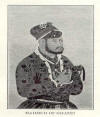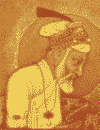







Class meetings:
Xyzdays 00:00-00:00pm,
classAddress
Instructor:
Pankaj Jain, Pankaj-Jain@UIowa.edu, 402, Gilmore Hall
Office
hours: 10:00-12:00pm, Wednesdays or by appointment
Course Description
Journey into India’s “discovery” by the western world from the times of Alexander to the recent visits by Bill Clinton and
Bill Gates. We will study how Indic traditions received and in
turn influenced the non-Indic cultures of various culture. Our
first milestone in this journey will be Alexander’s arrival in western India before the Common Era. Next in our time line will be the encounters of Indians with
Middle-Easterners in the medieval periods, followed by European missionaries
and other colonial powers. Our final destination will be contemporary western
scholarship about India and Hinduism. Bon Voyage!
Goals and Objectives
Today, we live in a global economy. But economic interdependence
is not
by themselves sufficient to create a universal human community. For this we
require a human consciousness of community, a sense of inter-cultural relationship.
One of the ancient countries India has interacted with many different cultures
over its history and this course traces some such examples. The objective is to
develop an understanding of how cultural exchanges occurred in the past and what
we can learn from such examples.
Course Requirements
Weekly postings
Students will post to the course bulletin board (accessible
through WebCT) a response to the
weekly readings. Responses should be about one page in length. These
submissions are a required part of the coursework. Content is more important
than form; you should try to avoid spelling and grammar mistakes, but your
postings are not expected to be polished essays. In referring to source
material of any kind, you should make specific references using appropriate
forms of citation.
Final Papers
A term paper of about fifteen
pages is due at the final day of the course. Students are encouraged to
collaborate with each other in developing topics and exploring resources,
although the final papers must of course be written by individual students.
Class participants will develop different
broad areas ranging from any of the historic cultural encounters covered
in the course.
Each student will post to the course bulletin board a paper topic
by the fourth week of the course, including an indication of the topic area in which it belongs,
and will then post the first draft of the paper by the mid-term. These postings are in addition to
the required weekly postings to the bulletin board.
Grades
Grades will be assigned as
follows: Weekly 1-page reading responses (due before each class) and class
participation (together, 20% of grade); mid-term examination (25% of grade); term-long
paper (first draft due in week 7, 10%; final draft due week 14, 20% of grade);
final examination (25% of grade).
Course Readings
·
Texts
The following books are required for the course, and are
available for purchase at University Book Store. Copies are also available on
reserve at the Main Library.
·
Other Required Readings
Certain materials will be handed out in class. These are
indicated on the course syllabus with an asterisk (*)
·
Additional Resources
Readings that may be helpful but
are not required are listed with other readings for the weeks to which they
most closely pertain, and are indicated with a triple asterisk (***).
Schedule of Meetings
Tuesday, September 3
·
Introduction
Tuesday, September 10
· Greek encounters:
Megasthenese records, who visited the Court of Chandragupta Maurya
(B.C.322-297)
Links:
Ancient world contacts
Readings:
- Eastern Religions and Western Thought by S Radhakrishnan
(OUP), Chap. 4
- Plato and the Upanishads by Vitsaxis, Basile, published by
New Delhi: Arnold Heinemann, 1977 (***)
Tuesday, September 17
·
Middle-eastern encounters
Readings:
- Al-Beruni’ s India by Arvind Sharma
- The history of India, as told by its own historians; the
Muhammadan period; the posthumous papers of H. M. Elliot by John Dowson
(***)
Tuesday, September 24
·
European missionary encounters
Links:
Vasco Voyage
Readings:
- Much Maligned Monsters by Partha Mitter, Oxford :
Clarendon Press, 1977
- Empires of the Monsoon: A History of the Indian Ocean and
Its Invaders by Richard Seymour Hall, HarperCollins Publishers; Jan 1998
(***)
Tuesday, October 1
·
Orientalist Accounts
Reading:
- Orientalism and Religion by Richard King
- Heathen in his blindness by S Balagangadhara, Leiden ; New York : E.J. Brill, 1994 (***)
Tuesday, October 8
·
Colonizing India
Readings:
- India discovered: the achievement of the British Raj By
John Keay Leicester: Windward, 1981
Tuesday, October 15
·
Indology of late 19th and 20th century
Readings:
- The Study of Hinduism (Studies in Comparative Religion, University of South Carolina) by Arvind Sharma
Tuesday, October 22
·
India and USA
Readings:
-
American Thinkers and India







